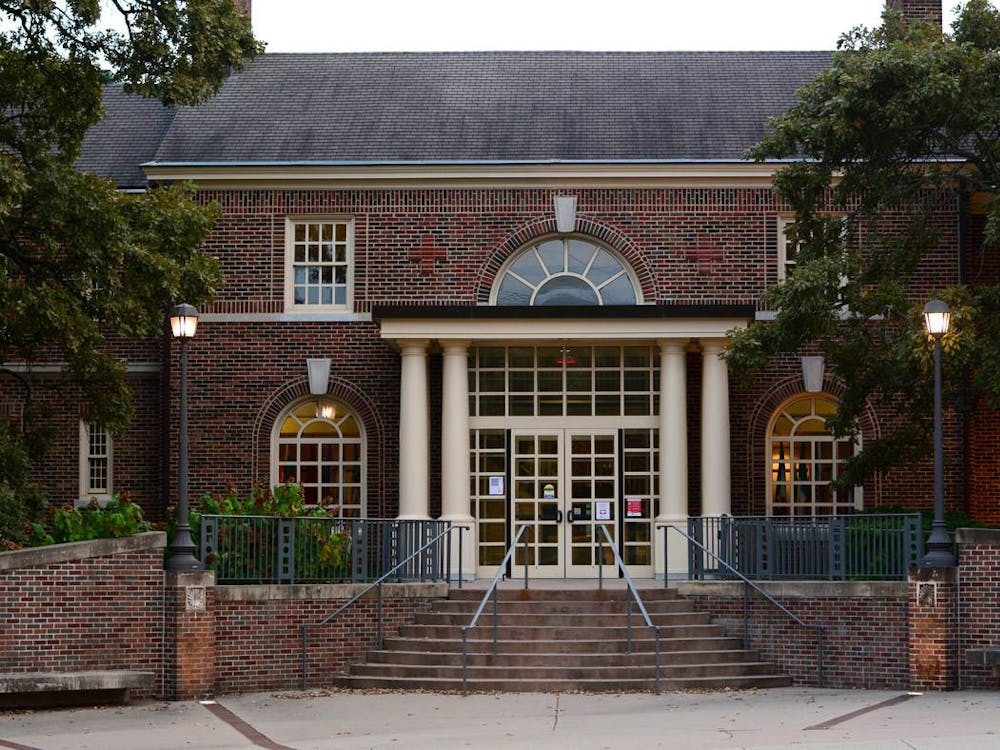By Emily Williams, Assistant News Editor
A group of students is organizing to protest Miami's student fees. By collaborating with faculty who have similar goals, the group hopes to promote transparency between students and the administration.
Senior Jessie Motts, who is spearheading the effort, said her biggest issue is students aren't kept informed about how the university spends money collected through student fees.
Motts said she and several other students first took notice when they were charged a fee for the Armstrong Student Center.
"That was the thing that really got everyone's attention," said Motts.
Miami students will pay the $110 per semester fee until 2039.
Currently, undergraduate students pay about $700 in fees per year on top of a set tuition cost. In addition to that sum, students who live on campus pay a $1,625 assessment fee for their meal plans, not including the balance added to purchase food on campus. Students in the Farmer School of Business pay an extra $100 fee per credit hour for business courses, and the College of Engineering and Computing charges its students a $300 per semester fee.
A portion of the $13,533 of tuition for in-state students and $30,233 for out-of-state students also goes toward a "General Fee," which covers services such as intercollegiate athletics, student organizations, lectures and artists, the Recreational Center and the Student Health Services center.
The new advocacy group of about 10 initial members is not an official student organization and, according to Motts, will probably stay that way.
"We're still very much in the formation process," she said.
Motts and other students involved in the group are looking for students who are power players, Motts said, and represent a variety of ages, majors and interests within the Miami community.
"We're definitely looking for people who are passionate about this," Motts said.
Enjoy what you're reading?
Signup for our newsletter
Hearing friends and fellow classmates who seemed to share the same views on Miami's fees helped inspire Motts to take action. She also noticed an increase in demonstrations and advocacy from student and faculty groups last year, like the formation of Miami's chapter of the American Association of University Professors (AAUP) in the spring.
After taking a creative writing class with Cathy Wagner, the vice president of Miami's AAUP chapter, Motts approached Wagner early this semester to express her interest in activism on the topic of student fees.
"The students were excited about getting started on activism around fees and getting fellow students informed …" said Wagner. "I'll continue to support them in any way I can."
Howard Bunsis, professor of accounting at Eastern Michigan University and AAUP financial expert, who gave a presentation on Miami's budget and finances in Upham Hall last Thursday, met with Motts and Miami's AAUP co-president Karen Dawisha that morning to discuss Motts' goals for the group.
The first goal of the group, Motts said, is to inform students about how much they're paying every year in student fees and how that money is allocated within the university's budget.
"With any kind of movement, you've got to start with information first," said Motts. "Being informed puts you in the best position for taking action."
Gwen Miranda Caniceiro, who graduated in May and is now pursuing her Master's degree at Miami, still plans to advocate for the group even as a graduate student.
"As an undergrad here, I had to pay for my own school," said Caniceiro. "We're hoping we can make it easier for some students in the future and raise awareness."
Motts, Caniceiro and a handful of other students involved in the group attended Bunsis's talk on Miami's finances. Keith Tuma, co-president alongside Dawisha, said he was pleased to see how many students attended and is open to working with the group on their efforts.
"Students should know what their fees support," Tuma said. "We're happy to work with students, faculty and the administration to promote knowledge and transparency."
Motts plans to launch their movement by making a series of short videos which would inform students about fees in an entertaining, humorous way that can attract a wide variety of students via social media.
Once the effort has a clear vision, Motts said, the group will transition from education to action.
"The more student voices that get incorporated into this, the more the university has to listen," she said.




